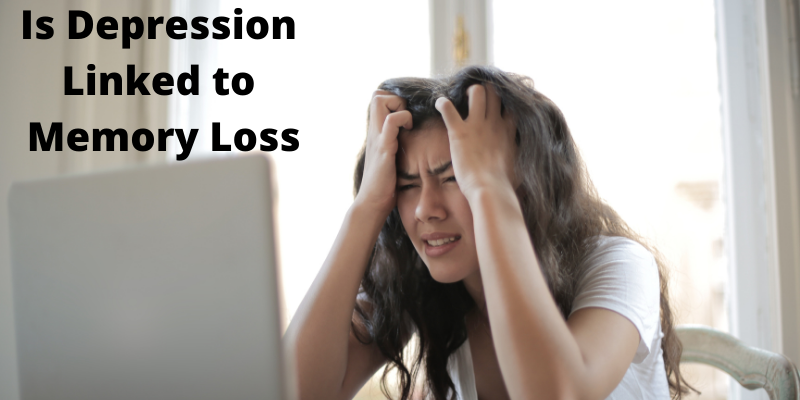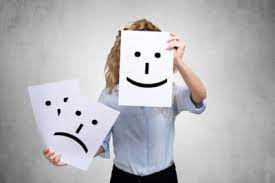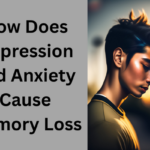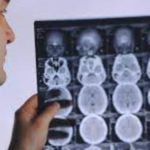Is Depression Linked to Memory Loss?
Does depression cause memory loss? To find out the answer to that question and more keep reading. This article discusses the finer points of depression and memory loss.

Does Depression Cause Memory Loss Introduction
Memory loss and depression are linked, but the exact relationship between the two isn’t entirely clear. Some people with depression claim that they experience severe memory loss as a result of their symptoms, while others report no problems with memory at all.
How can you tell if you’re experiencing memory loss caused by depression? What should you do if you think your memory has been impacted by your depression?
And what should you be aware of when seeking treatment for depression? This blog post will answer these questions and more.
The Relationship Between Depression and Memory Loss
The truth is, there’s a lot we don’t know about depression and memory loss. In some cases, people with depression may experience impaired memories or they may remember things differently than people without depression.
The relationship between these two conditions is complex, which makes it difficult to say for sure what causes what. What we do know for sure is that memory loss can be a side effect of being depressed and that it can make living with depression even more challenging than it already is.
It’s important not to dismiss your feelings or doubts as signs of worsening memory; if you feel depressed, talk to your doctor about whether anti-depressants might help clear up those symptoms.
How Do We Know if Depression Causes Memory Problems?
There are many different types of memory, but here we’re going to focus on long-term memory, which is crucial for everyday functioning. It’s everything you can remember about your life: things you learned today, yesterday and last week, what happened last year or even ten years ago.
Scientists aren’t sure exactly how depression affects long-term memory or what causes it in people with depression, but there are a few theories that have some evidence behind them.
One theory suggests that if you experience chronic stress like feeling depressed your body releases stress hormones like cortisol into your bloodstream. These hormones may cause damage to certain parts of your brain involved in memory formation, like the hippocampus.
Another theory suggests that depression disrupts communication between two areas of your brain involved in memory formation: one area where information from short-term memory is stored (the prefrontal cortex) and another area where information from long-term memory is stored (the hippocampus).
This disruption may be caused by changes in neurotransmitters like serotonin or dopamine, chemicals used by neurons to communicate with each other throughout our brains.
The Role of Neurotransmitters in Mood Disorders
When neurotransmitters aren’t working properly, it can cause a variety of neurological symptoms, including memory loss. There are different neurotransmitters involved in mood disorders, depending on which type of disorder you have.

For example, people with bipolar disorder often have low levels of dopamine. And there is some evidence that people with depression might have abnormally high levels of glutamate and GABA or very low serotonin activity.
If any one of these neurotransmitters are out of balance, it could be a significant cause of memory loss. Additionally, side effects from certain medications for bipolar disorder and anxiety disorders may also contribute to memory loss symptoms.
Brain Structures Involved in Psychiatric Disorders
You need to know that depression and memory loss are caused by an imbalance in brain chemicals. When these chemicals fall out of balance, it affects how your brain functions and causes symptoms of depression such as sadness, anxiety, tiredness, irritability, loss of energy, and feeling worthless.
In addition to making you feel miserable, imbalanced levels of these neurotransmitters can also contribute to changes in your memory.
However, if you suffer from an illness or poor diet then it is possible that your vitamin levels could become depleted leading to memory loss as well as a lack of concentration.
Can Memory Loss From Depression Be Reversed
Recent research suggests that memory loss caused by depression may be reversible. While it’s true that stress, anxiety, and depression can all cause temporary memory loss, certain antidepressants can help improve memory and brain function when used in combination with therapy.
If you think you’re suffering from permanent memory loss due to depression, speak with your doctor. In some cases, doctors may recommend antidepressants that help reverse short-term memory loss caused by depression, such as Ritalin or bupropion (Wellbutrin).
These drugs are often prescribed for people who have ADHD, but they also work well for treating depression. When combined with cognitive-behavioral therapy (CBT), these medications can boost overall mental health and restore lost memories of loved ones.
Depression and Memory Loss In the Elderly
It’s common for older adults with clinical depression to have memory loss or even senior moments. It’s important for friends and family members of seniors experiencing memory loss, whether it’s caused by depression or something else to recognize what these symptoms are and how they might respond.
If you think your aging loved one is depressed, try getting him or her a medical exam. After a checkup, if your loved one has been formally diagnosed with depression and you notice a decline in his or her mental sharpness, keep in mind that some medications (including anti-depressants) can cause side effects that mimic early dementia.
Your doctor may be able to recommend alternatives that don’t come with such an effect. In addition, when dealing with elderly patients who suffer from both memory loss and depression, doctors should be sure to look at possible underlying causes of both conditions before prescribing any medication.
For example, Alzheimer’s disease may be causing forgetfulness while depression is making it hard for your loved one to cope. In many cases like these, treating only one condition will make little difference; treating both will often yield much better results.
Depression and Memory Loss Study
In a study published in December 2013, researchers found that people with depression have abnormal brain activity when experiencing positive memories. The study, which was conducted at University College London, involved looking at fMRI scans of participants’ brains while they viewed happy and sad images.
Researchers discovered that those who had been diagnosed with depression had lower activity in their hippocampus, a region of the brain linked to memory. Further studies are needed to confirm whether there is a connection between mood disorders and memory loss and what types of treatments can be used for each.
However, if you’re suffering from depression or other symptoms such as memory loss, it’s important to see your doctor right away. Early diagnosis and treatment can help you feel better faster.
Does Depression Cause Memory Loss Conclusion
As you can see, we are not saying that a depressed person has no hope of improving her memory. We’re just saying that if a person is struggling with depression, then it is important for him or her to recognize how their memory might be affected by their emotional state.
In fact, even if depression has not been diagnosed yet, anyone who is struggling emotionally could potentially benefit from treating those feelings before addressing his or her memory issues directly.
Once a person’s depression symptoms have improved and a general sense of emotional well-being has been achieved, there are still many ways to improve one’s overall mental acuity and stay at top cognitive performance.




